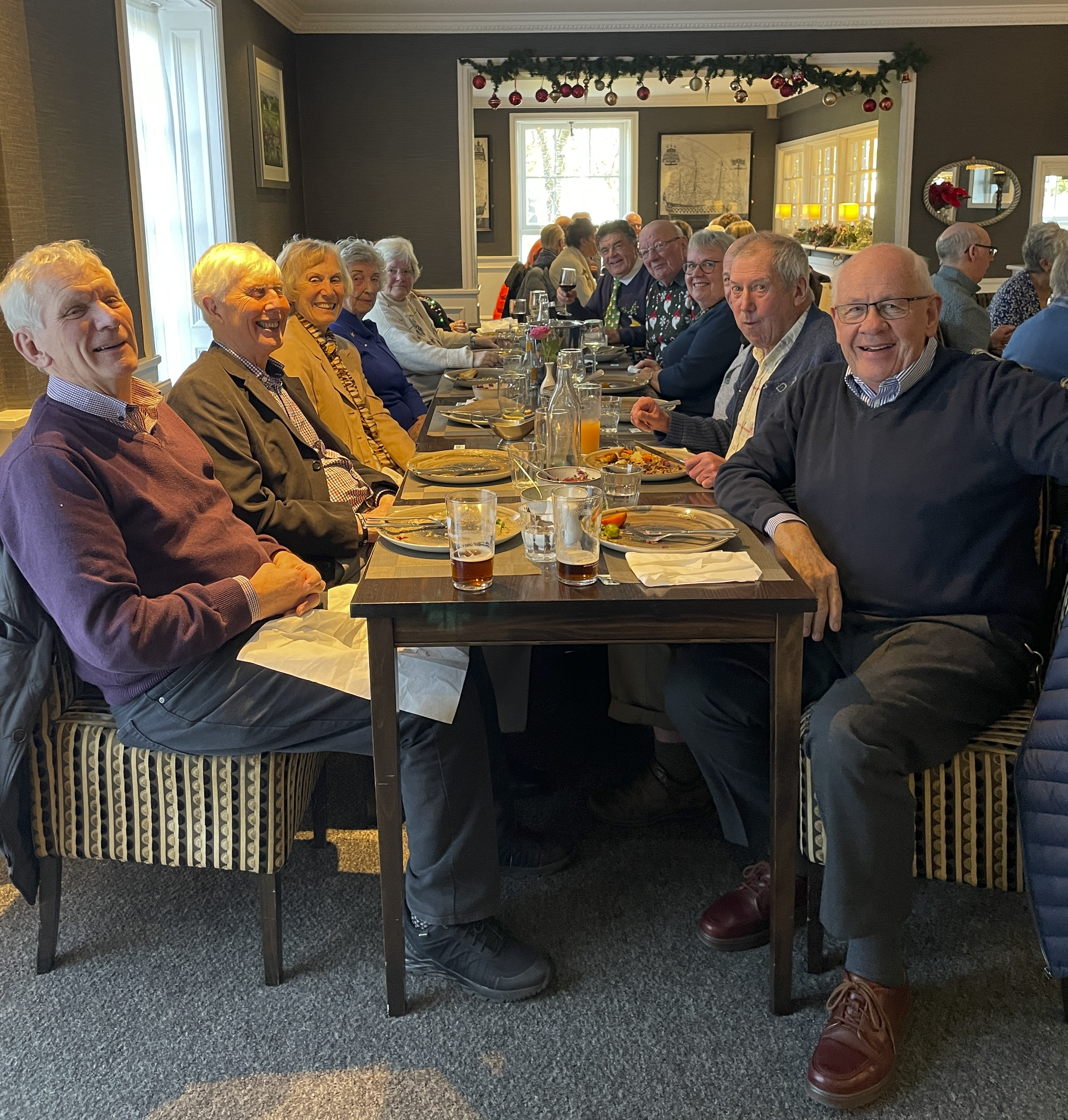
Category Archives: General
The name Rhyl
There have been lots of attempts to understand the origins of the name “Rhyl” but this one seems very convincing.
Taken from “The Journal” of Saturday, February 2nd 1901.
“The name of our town is pronounced as if it were spelt “Rhill” and not “Rhyle,” as we have often heard it pronounced. The meaning of the name has been the subject of much discussion, and several interpretations have been suggested, but there can be no doubt that it signifies a Salt Marsh. In all old seventeenth century documents the site of the present town is always described as either Tywyn yr hûl, or simply yr hûl or hŷl, which abbreviated becomes Rhyl. Tywyn means the Strand and hûl is the same as hâl or hêl, meaning brine, and then the land which brine flows over-a salt marsh. This exactly describes the condition of this district when the sea water ran up the water courses, and frequently flooded the adjoining land. Rhyl, which is situated in the Northern extremity of the lovely and renowned Vale of Clwyd, is one of the chief watering places in the Principality.”
Filed under General
Christmas Lunch
Thirty two members of Rhyl History Club enjoyed a convivial, festive lunch today. Many thanks to the Bod Erw for the lovely food and efficient service. Merry Christmas, Nadolig Llawen to all – we look forward to meeting again in the New Year when our January talk is “The Abergele Railway Disaster of 1868” by Tony Griffiths.



The great storm of 1903
A fascinating report by Jonathan Amos, a BBC Science Correspondent, is published on their website today. The full article can be read here
“A mighty storm that tore across Ireland and the UK more than a century ago produced some of the strongest winds the British Isles have ever witnessed.
Scientists reviewed Storm Ulysses of 1903 by digitising paper-based weather readings from the time and subjecting them to a modern reanalysis.
Many places would have felt gusts in excess of 45m/s (100mph or 87 knots).
The cyclone left a trail of death, shipwrecks, smashed infrastructure, uprooted trees and widespread flooding.”

This is how the Rhyl Record and Advertiser reported the storm in their paper on February 28th 1903:
TERRIFIC GALE AT RHYL.
“Shortly after eleven o’clock last (Thursday) night a stiff South Westerly gale accompanied by a driving rain commenced to blow, and it gradually developed until it attained a ferocity the like of which had not been experienced at Rhyl for many years. The storm raged with continually increasing violence the whole of the night causing even in the least exposed parts of the town almost a general disturbance of the slumbers of inhabitants and positive fear among the more timid. So violent were some of the gusts as to cause houses to shake on their foundations, and windows to clash and to tremble in a manner that was distinctly alarming. Early this morning on the front there was a sand storm of a severe character. The sand was blown in a manner which rendered passage along the front almost impossible, whilst there was rough and magnificent sea, the waves rising mountains high. So far as could be seen there was no damage of a particularly serious character. But there was a more than usually large proportion of chimney stacks blown down. Some of these were on the parade and in the principal streets, but the majority of them were in Vale Road, where general destruction among chimney stacks and roofs seems to have been caused. The whole length of the road is covered with debris, and presents altogether a most remarkable scene. Further than numerous damages of this kind, we have heard of nothing serious up to the time of going to press.”
Further information about the damage done by the storm in Rhyl can be read in the Rhyl Journal of March 7th 1903 here
Filed under General
International Women’s Day
Research in old local newspapers seems to indicate that the first mention of suffragettes in Rhyl is in July 1908. A meeting of ladies was convened at the Town Hall to decide whether to start a branch of a suffrage society. They decided unanimously to start a branch in Rhyl of the “National Union of Women’s Suffrage Societies” which, unlike the “Women’s Social and Political Union”, was peaceful and constitutional in its methods. They decided to start the society on a working basis early in September. The following year the local newspapers contained very many references to the suffragettes both locally and nationally.
Women over 30 in specific categories gained the vote in 1918. It wasn’t until 1928 that everyone over 21 got the vote. In 1929 women over 21 voted in their first general election.
Below are two excerpts from the papers – note that the Town Hall hosted representatives of the militant “Womens’ Social and Political Union.”
Last Friday evening a public meeting in the Rhyl Town Hall was addressed by two representatives of the National Women’s Social and Political Union (the militant section of the women’s suffrage movement – “Deeds not Words”.)
Rhyl Record and Advertiser August 7th 1909
“Why should women, just because they happened to be born women which, of course, they could not help—(laughter)—be disqualified from serving as citizens in as full a sense as the men? When women did exactly the same thing as men did to deserve the vote- contributed to the rates and taxes of the country – they ought to be permitted to enter into the same privileges as the men (applause). The N.W.S. & P.U. existed to champion the rights of those women who helped to keep the country’s exchequer going just as the men did. They asked for no more privileges than men enjoyed, but they were not going to be content with less (applause and a voice: Bosh !’) They were not seeking to make women the rulers of the country, but to make them the comrades and equals of the men in matters of citizenship (applause).”
Rhyl Record and Advertiser August 28th 1909
“On Tuesday afternoon Rhyl was again visited by a party of “suffragettes” and their meeting on the sands proved a particularly lively affair. It was advertised, as usual, by means of announcements in chalk on various footpaths in the town but instead of holding forth near the Pier as on former occasions the party proceeded to the extreme west end of the foreshore. Here for some time they had a very appreciative and sympathetic audience, and they had practically had their say when their whereabouts became generally known. As soon as it was discovered where the meeting was being held there was a general rush in that direction from the centre of the seafront (where many had congregated in anticipation of a meeting between the minstrel pitch and pier), and the aspect of the meeting was quickly changed from one of sympathy or at any rate tolerance to one of hostility. Miss Hewitt was the principal speaker, and up till that time she had thoroughly held the attention of the audience and won a fair amount of applause, her oratorical powers being of no mean order. The remainder of the meeting was, however, of a rowdy nature. Heckling and banter, all of which the speaker and her friends endured stoically, at length gave way to pelting, bags of sand and other missiles being showered upon the party. At last there was a rush for the tub which served as a platform, and it was seized and thrown into the sea. Such was the temper of a section of the crowd by this time that the “suffragettes” seemed in danger of a ducking. Thanks to the intervention of the Promenade Inspector Hayes and one or two male sympathisers, of the “suffragettes“, the rougher element of the crowd was restrained from doing the party any further violence, and they were allowed to retreat in peace. The heckling which took place in the course of the meeting was largely of a humorous character. One of the few questions asked which had any real hearing upon the “suffragettes” campaign was “Why is it that so many of those taking part in the “suffragette” movement are single women?” Before Miss Hewitt could answer someone in the crowd replied “Because they can’t get husbands,” and her own reply was lost in the roars of laughter which followed.”
Filed under General



